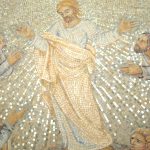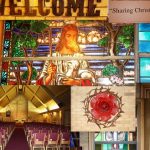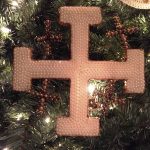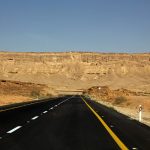RCL Reflection for Transfiguration Sunday, Year B, Feb. 11, 2018
No, we weren’t on the mountaintop with Peter, James, and John, but the light of Christ and the presence of Jesus is all around us. Jesus still reveals the glory of God in ways both ordinary and extraordinary. All we need do are listen and look. (Photo: Art in the Christian Tradition, Creative Commons)










